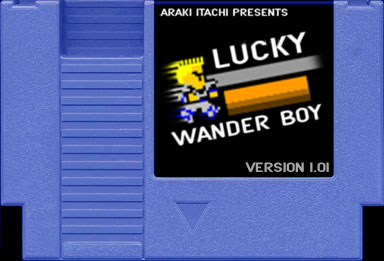
Namco's Katamari video game series seems to exist to answer many of the great metaphysical quandries expressed by history's greatest minds in coherent, brightly colored, whimsically-soundtracked packages.
Katamari Damacy (2004, PS2), the series' debut allowed the player a view into this world; not only a view, but a task to understand and stake a claim in the space and temporality of the cosmos. The avatar is the Prince of the Cosmos, son of the King of the Cosmos, and is charged with using the katamari to roll up a new set of planets (the existing ones having been destroyed in an absent-minded wave of havoc by the King himself).
The Prince's task hurtles him into an epistemological journey whereby the player virtually takes inventory of the video game world by empirically "rolling" it up. The contents of this subsequent ball of knowable objects may be inspected later, to understand the finer details of the objects whose sum creates knowable world. It pays to note that this task is in itself a quest emerging absurdly as the Prince's (and by virtual extension the Player's) simultaneous birthright and freely chosen quest. The Prince is in the unique position to right the wrongs of his father's carelessness, but also requires tools of his father to properly and meaningfully reorganize the ruined universe.
Are we not similarly endowed with the twofold inheritance of a ruined universe, so presented to us as marred by our predecessors, but in many ways reliant on the tools they themselves provide us?
Perhaps.
And perhaps it is only by such a recognition that we may be able to take up the tools and reorganize the tattered spoilia of a knowable world, and by approaching and rolling up its pieces eventually arrive at a new and meaningful organization of pieces.
but there's much more to be said about such things.
I didn't even mention the cousins...

